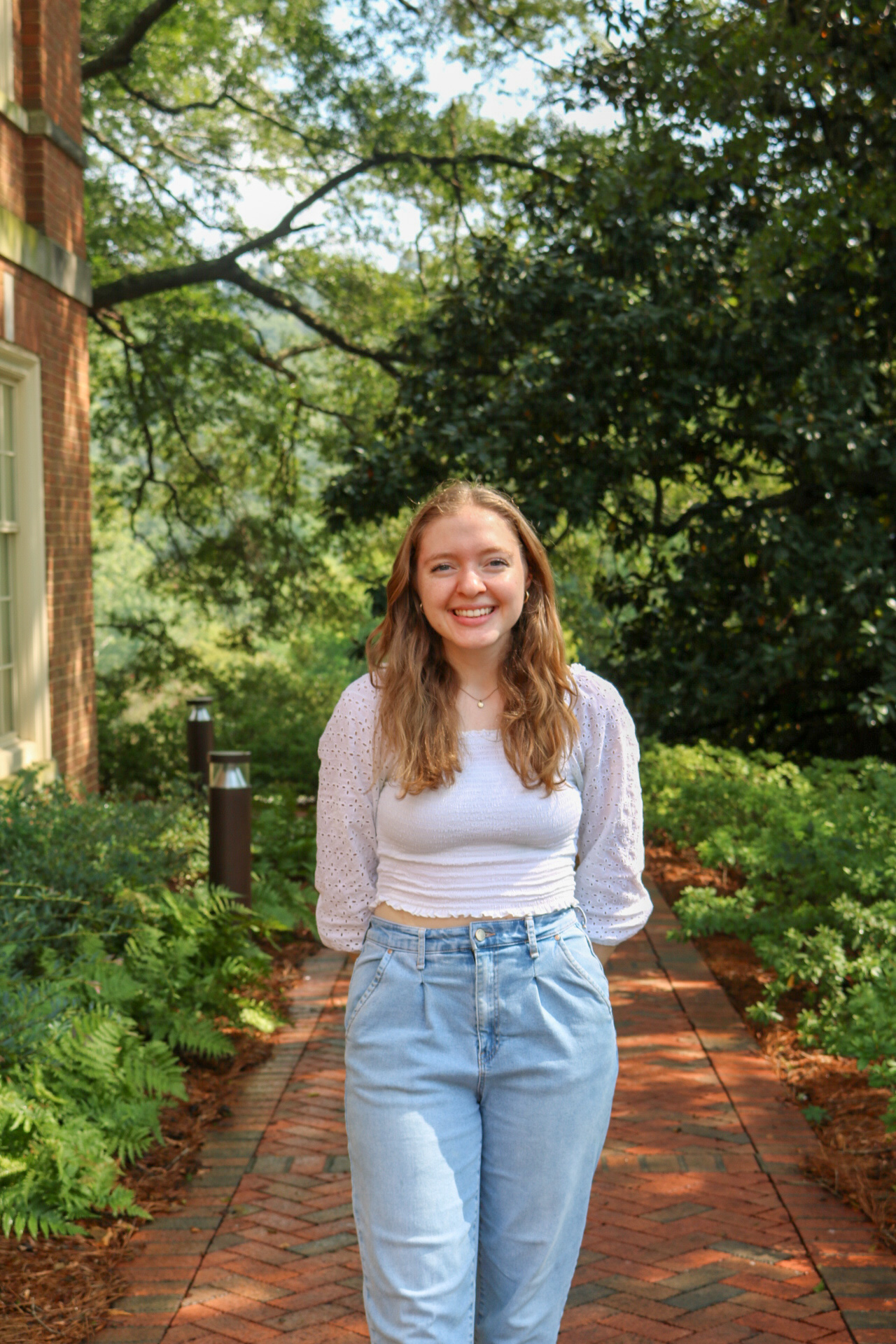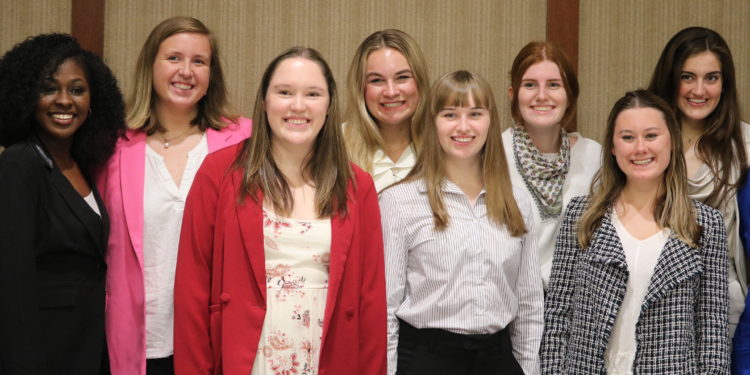On Wednesday, Oct. 19, Samford’s League of Women Voters (LWV) hosted and moderated a debate between the Samford University College Democrats and the Samford University College Republicans. The event was open to the university and was live-streamed, recorded and posted to Samford’s LWV Instagram page.
Samford’s League of Women Voters is a student organization that was founded this fall, and has already hosted several events. The league strives to promote political responsibility, educate the public on major policy issues and influence public policy. It is open to both men and women.
Founding member Jada Hunter hosted the event and moderated the third and final debate. She introduced Michael Janas, Professor of Communications Studies, who acted as the moderator of the first and second debates.
There were three topics debated by the SUCR and the SUCD, and one member from each group represented their party’s opinion on each topic.
The first topic debated was Biden’s student loan forgiveness plan. In this round, Faith Jones represented the SUCD and Nikolas Pillaro represented the SUCR. Jones introduced her party’s viewpoint first.
“While [student loan forgiveness] is not a permanent solution to the student loan debt crisis,” Jones said, “it is a temporary solution for people like us… this is the first step in making college more affordable for all Americans…”
Pillaro negotiated her point, arguing, “It’s unAmerican. It goes against the idea of working for what you want to achieve.”
The next pair of debaters, Brannon McKinley from the SUCD and Tori Moody from the SUCR, addressed marijuana legalization.
McKinley argued for the legalization of marijuana, claiming that the product can be better regulated when decriminalized, and can also be used as a medical treatment for ailments such as epilepsy and cancer. Additionally, he asserted that the legalization of cannabis would help pardon marginalized groups who have been charged with possession of marijuana.
Moody opposed legalization, emphasizing that American teens are prone to abuse the drug, and that there hasn’t been enough research on the long-term health effects of cannabis.
“Many Democrats believe in the health benefits of marajuanna as a pain reliever, anti-anxiety medication or creativity enhancer,” Moody said “However, there are multiple alternatives to [marajuanna].”
When asked about his party’s opinion on Biden’s choice to pardon those charged with possession of marajuanna, McKinley’s views supported the movement.
“When you look at the legal process behind charging someone [with possession], it is so obscure,” McKinley said. “You have to go through so much for [something that isn’t] a big deal.”
The last topic, moderated by Jada Hunter, covered election security.
Hunter’s first question was, “What would your party do to make elections secure? What is going well, and what needs to be done in terms of election security?”
SUCD representative Faith Jones responded first.
“The biggest threat to our election security is not necessarily imposter fraud,” Jones said, “but I think the biggest threat to security nowadays is cyberattacks and hacks from foreign parties… the Democratic national convention [is] increasing our national defenses to prevent hacks and cyberattacks in future elections.”
SUCR representative Luke Adams answered the same question.
“Domestic threats to national security are absolutely a thing,” Adams said. “There have been thousands of documented and proven and convicted cases of flaws in election integrity.”
Adams elaborated that in the past there have been mayors who stuffed ballots, officials who bought votes and forged signatures. To prevent these frauds, Adams called for the strengthening of voter ID requirements and for the records of registered voters to be annually reviewed and updated.
Jones asserted that cases of voter ID fraud are extremely rare; only 31 cases of it were discovered by the Brennan Center for Justice. She later argued that stricter ID requirements reduce public participation and stand in the way of an accurate vote.
The night’s debate offered a great opportunity for those watching to learn about the viewpoints of the two parties, and for the representative students to sharpen their debating skills.

Staff Writer




